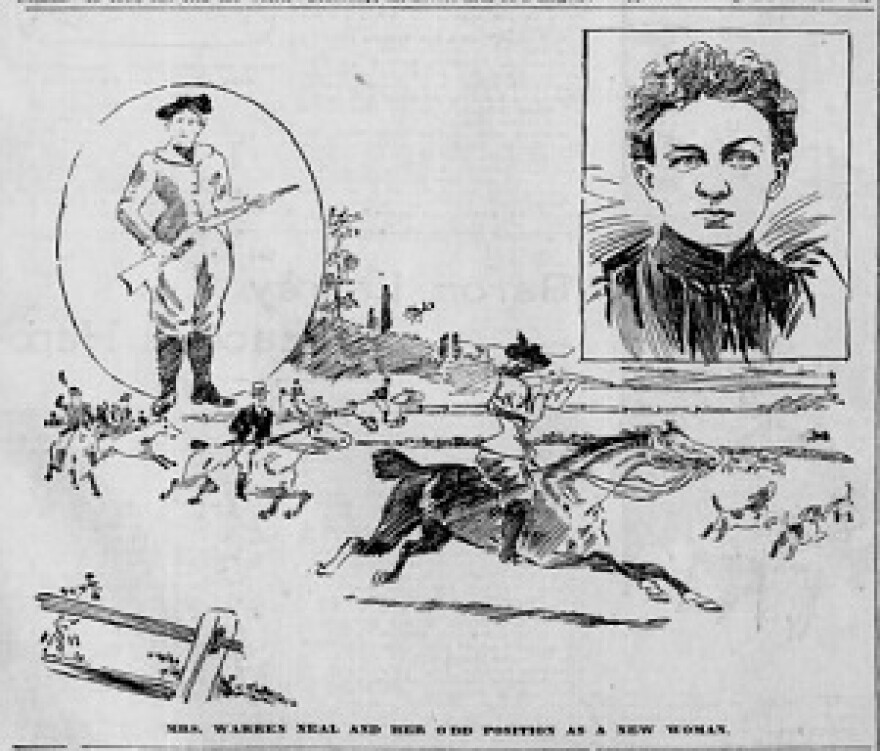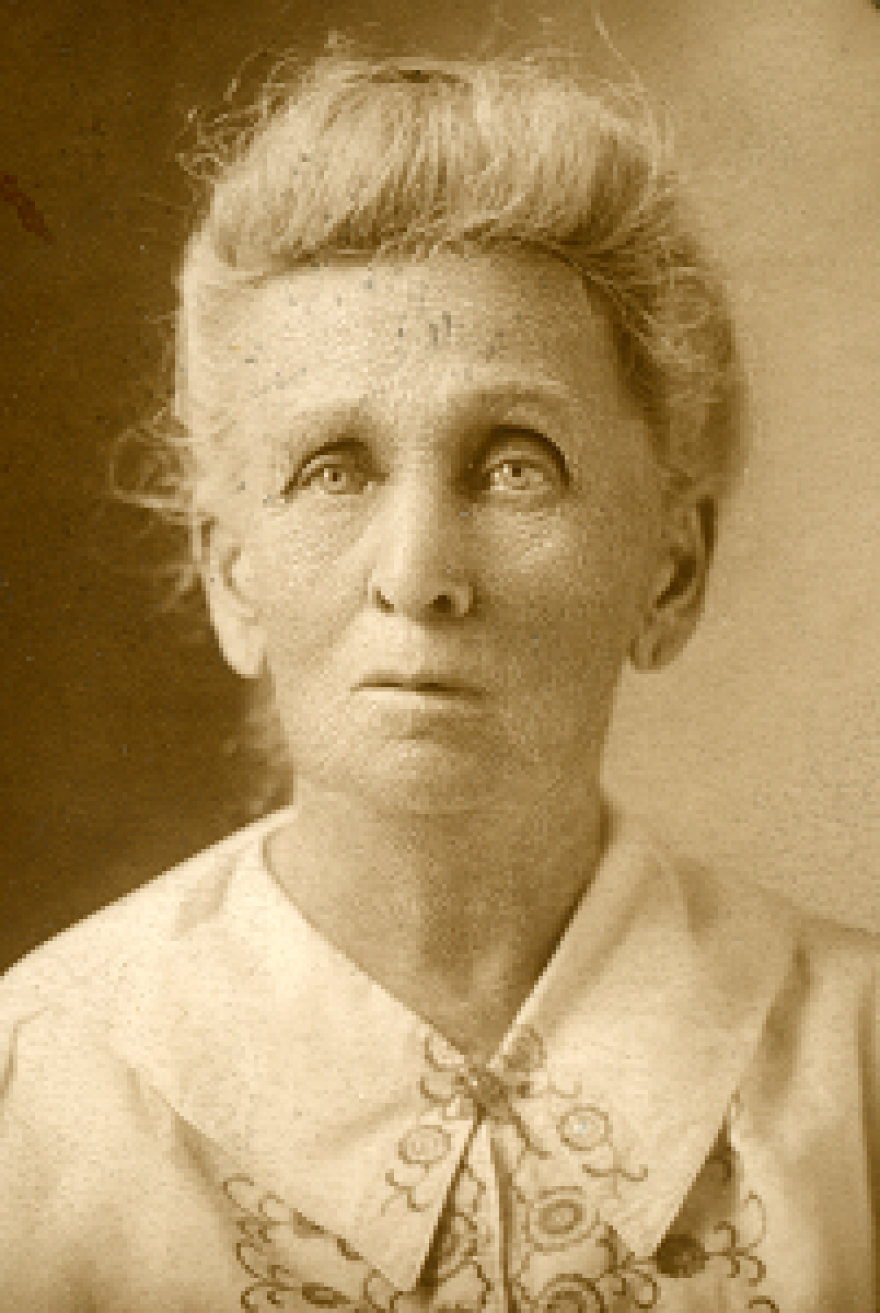Back in the late 1800s there was little enforcement of fish and game laws in northern Michigan. That all changed when a small woman in her 40s came into the picture and broke the norms of the day to become the first female game warden in the country.
Huldah Neal married her husband Warren Neal in 1872 and raised two children on their farm located near Long Lake, where she also delivered the mail to her community on horseback. An otherwise ordinary person, Neal became somewhat of a legend in 1897 when she was appointed a deputy game warden overseeing Grand Traverse County.
“That was 23 years before women secured the right to vote in this country,” said Gary Hagler, the chief of the Michigan Department of Natural Resources law enforcement division.
He said news of Neal’s appointment spread across the country. Newspapers stories about her appointment included drawings depicting her wearing a long jacket with billowy pants, holding a gun. The articles called her “the new woman” who was “plucky” and an excellent shot.
One clipping in the Herald and Presbyter reads, “she wanted to see the fish and game in her county protected and the men seemed utterly incapable of enforcing the laws.”
At the time, a gang of poachers in Grand Traverse County were openly breaking game rules. These men were likely armed and dangerous, Hagler said.

“When you think about the lack of technology, the lack of backup, back in the day it was still very risky,” he said. “But she wasn’t going to be dissuaded from doing what she felt was the right thing.”
Newspaper records don’t explain what happened between Neal and these poachers. But according to a profile of Neal that appeared in the Philadelphia Inquirer in 1897, she was credited with many successes.
The excerpt, re-printed in a more recent Grand Traverse Journal article, said in May of 1897, there were 149 fish and game poaching cases in Michigan with most of those cases established by Neal. Almost two thirds landed a conviction, which according to the article, set a record for the DNR.
Andrea Erratt is a conservation officer who serves in Antrim County, which borders the area Neal covered a century earlier.
She imagines how tough Neal had to be back in the day, walking or riding horseback through roads and trails that weren’t as developed as they are now.
“If I had to check a bear hunter way back in the swamp, I had a quad I can ride back there. She was walking around doing the job,” Erratt said. “She worked a lot harder than I did, I’m thinking.”
Neal’s example has paved the way for women to join DNR law enforcement, Erratt said. Her former boss was a woman. And today her partner in Antrim County is also a woman.

Andrea Erratt is a conservation officer with more than 20 years of experience at the DNR.
Still, few women choose to follow in Neal and Erratt’s footsteps. Erratt said only 26 of Michigan’s 237 conservation officers are women. But she thinks that’s changing.
“It seems like lately it’s become kind of cool for women to hunt and fish unlike when I was growing up or when my grandmother and my mom were growing up,” Erratt said.
She said she’s cheering on the five of the 19 conservation officers in training who are women — a larger proportion than usual.

Today, Huldah Neal’s story features prominently at the DNR headquarters in Lansing. This summer, Neal was entered in the Michigan Environmental Hall of Fame.
Erratt said she was thrilled to see Neal’s groundbreaking achievements get more recognition. She said the impact Neal has had on conservation efforts across the country is immeasurable.
“Because of her it raised awareness to the importance of protecting wildlife and fish and game and the out of doors,” Erratt said. “It just has become more and more important as the years go on, especially as there are more people up in northern Michigan enjoying it, for all of us to carry on her legacy of protecting our beautiful northern Michigan area.”



